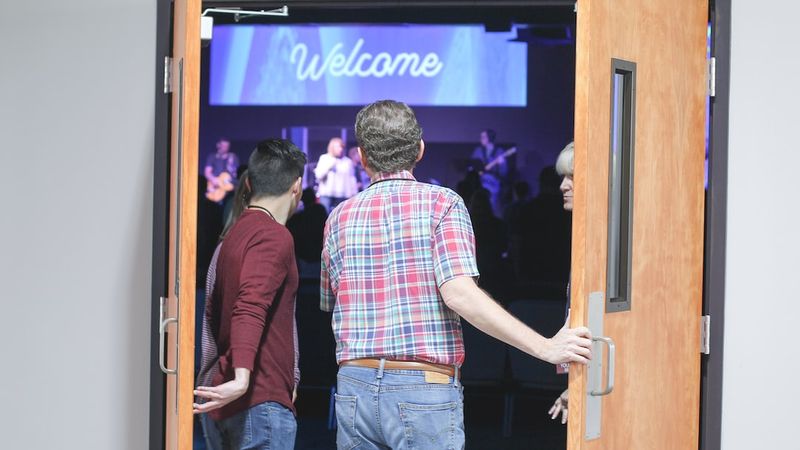Glastonbury’s Print Newspaper Celebrates 10th Birthday
Glastonbury Free Press, the resident printed newspaper of the Glastonbury Festival, is marking its 10th birthday this year. While many news outlets have transitioned to digital platforms, Glastonbury Free Press chooses to embrace traditional print media. This unique newspaper offers festival-goers news and updates from the Glastonbury Festival, which takes place at Worthy Farm in Somerset.
The paper is printed on site using a vintage five-tonne Heidelberg printing press that is turning 70 this year. Despite the digital age and the decline in newspaper readership, the Glastonbury Free Press continues to thrive and gain recognition. Adrian Manning, who leads the printing team, humorously noted that in the early years, people didn’t know who they were, but now they are well-known and appreciated.
The Importance of Providing a Newspaper
Glastonbury co-organizer Emily Eavis expressed the festival’s commitment to providing a newspaper, stating, “It’s quite old school now, many people don’t read newspapers anymore, but we produce this paper which is just entirely for the world that we’re in for these five days.” The Glastonbury Free Press serves as a dedicated source of information and entertainment tailored specifically for the festival-goers.
Two editions of the newspaper are published each year during the festival, one on Thursday and one on Sunday. A staggering 30,000 copies are distributed across the festival site for attendees to enjoy. The content of the newspaper is written by people from the festival, on the festival, and during the festival, capturing the unique spirit and experiences of Glastonbury.
The Magic of Print
Chris Salmon, a regular contributor to Glastonbury Free Press since its inception in 2013, describes the newspaper as a wonderful thing. The printing blocks for the newspaper are created in Bristol and then transported to Somerset, where the printing team produces the 30,000 copies using the vintage 1953 Heidelberg press.
During the printing process, festival-goers have the opportunity to witness the press in action on a dedicated stage inside a tent. The press creates an atmosphere of nostalgia and fascination, drawing in both older generations, who used to work in Fleet Street, and young children who are amazed by the machinery. Salmon hopes that Glastonbury Free Press will continue to be present at the festival for many years to come, preserving the tradition of print media in a digital age.
Editorial: The Significance of Glastonbury Free Press and Print Publication
The 10th anniversary of Glastonbury Free Press highlights the enduring appeal and importance of print publications, even in an increasingly digital world. While much of the news industry has shifted to online platforms, the success and recognition of this newspaper demonstrate the continued relevance of print in certain contexts.
Glastonbury Festival is a unique event, known for its vibrant and diverse atmosphere. By providing a physical newspaper, the festival organizers are not only offering a valuable source of information and entertainment but also fostering a sense of community and tradition. The tangible nature of a printed newspaper adds an element of connection and engagement that cannot be replicated by digital media.
Furthermore, Glastonbury Free Press serves as a platform for festival-goers to share their experiences and stories, creating a collective narrative that captures the spirit of the event. The content being written by festival attendees themselves adds a personal touch, making the newspaper a true reflection of the community it serves.
While it is true that traditional newspapers have faced challenges in recent years, the success of Glastonbury Free Press demonstrates that there are still contexts and communities where print publication can thrive. It reminds us that different forms of media can coexist and cater to different needs and preferences.
Advice for the Future of Local Journalism
The example set by Glastonbury Free Press offers valuable insights for the future of local journalism. In an era dominated by large-scale media conglomerates and digital platforms, local newspapers face significant challenges to their sustainability and relevance.
However, the success of Glastonbury Free Press shows that community-focused journalism can still thrive when it connects with its audience on a personal and meaningful level. By embracing the unique characteristics and needs of the local community, newspapers can carve out a niche and provide valuable content that resonates with their readers.
Another crucial aspect highlighted by Glastonbury Free Press is the importance of engaging the community in the news-making process. By involving the festival-goers in writing and producing the newspaper, the Glastonbury Free Press creates a sense of ownership and pride among its readers. This participatory approach gives the newspaper a distinct voice and fosters a deeper connection with its readership.
In conclusion, while the digital landscape continues to reshape the media industry, there is still room for print publications, especially in niche communities and events like the Glastonbury Festival. The success of Glastonbury Free Press not only showcases the value of print but also offers valuable lessons for the future of local journalism, emphasizing the importance of community engagement and meaningful storytelling.

<< photo by Content Pixie >>
The image is for illustrative purposes only and does not depict the actual situation.




